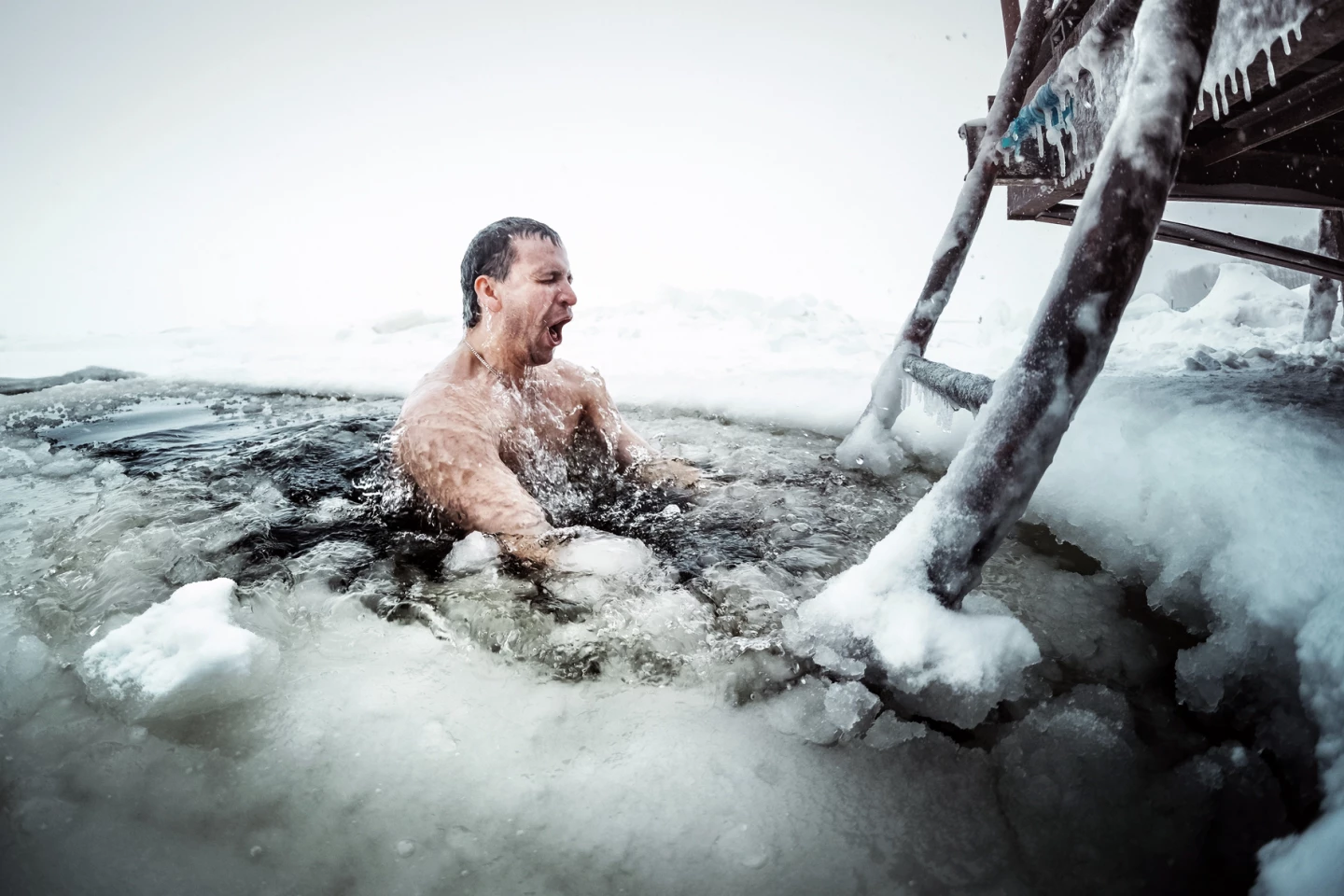Enduring a week’s worth of cold water plunges can jolt the body’s cells into starting the process of autophagy to clean up and recycle old, worn-out, and broken parts, according to a new study. It highlights the potential of ice baths as a treatment for aging or chronic illness.
Earlier this year, we reported on a study into the health benefits of cold water plunges and cold showers to see whether they had a scientific basis. One of the findings the researchers thought was “counterintuitive” was the short-term rise in inflammation associated with cold-water immersion.
Now, new research led by the University of Ottawa (uOttawa) in Canada has found that sticking with cold water plunges for seven consecutive days allows cells to acclimatize and produces actual changes in cells’ protective functioning.
“Our findings indicate that repeated cold exposure significantly improves autophagic function, a critical cellular protective mechanism,” said Glen Kenny, Full Professor at uOttawa’s School of Human Kinetics, Director of the University’s Human and Environmental Physiology Research Unit (HEPRU), and the study’s corresponding author. “This enhancement allows cells to better manage stress and could have important implications for health and longevity.”
So, what exactly is autophagy? Imagine each of your cells is a tiny house. Over time, the stuff inside these houses gets old, broken, or is no longer necessary – things like damaged proteins, worn-out bits of cells, or invading germs. Autophagy is the house-cleaning crew that finds the junk, wraps it up in a little bubble, breaks it down, and reuses the leftover good stuff. The process of autophagy keeps cells healthy, helps protect against disease, and plays a big role when we exercise or fast by helping to provide energy and nutrients.
For the present study, the researchers got 10 healthy, physically active males with an average age of 23 to immerse themselves in 14 °C (57.2 °F) water an hour a day for seven consecutive days. They monitored proteins in the men’s blood to see how cold-water plunges affected cellular stress responses, including autophagy, inflammation, and heat shock responses.
While its name is a bit misleading in this context, the “heat shock response” refers to cellular stress in general, not just heat. When you jump into cold water, your cells experience sudden stress that can disrupt the proteins inside them to misfold or clump up. This kicks off the body’s emergency fix-it mode, the heat shock response. Heat shock proteins (HSPs) are produced to help refold misfolded proteins, prevent clumping, and send the really damaged proteins off for recycling (sometimes via autophagy).

Over the course of the seven-day study, the researchers saw “marked changes at the cellular level.” Initially, the men showed “autophagic dysfunction,” as indicated by an accumulation of the protein p62. This protein binds to and tags the cellular junk referred to above in the house analogy, marking it for destruction. The tagged junk and p62 are then both broken down by autophagy. The accumulation of this protein suggests that autophagy wasn’t working properly. Elevated p62 levels were seen alongside a rise in caspase-3, an enzyme that plays a key role in apoptosis or cellular self-destruction, likely due to cold-induced stress. While autophagy and apoptosis are different processes – the former is about helping cells survive, and the latter helps remove cells in a controlled way – they can be connected. If autophagy fails to save a severely damaged cell, apoptosis (and caspase-3) might step in to take it out of commission.
By day four of the experiment, p62 levels had decreased (but were still higher than baseline), and caspase-3 remained high. The researchers suggest this is because “autophagic responses were not sufficient to counter the associated cold-induced stress.” Then, there was a shift on the seventh day, and protective autophagic activity overtook cell death signaling.
“By the end of the acclimation, we noted a marked improvement in the participants’ cellular cold tolerance,” said the study’s lead author, Kelli King, PhD, a postdoctoral fellow at HEPRU. “This suggests that cold acclimation may help the body effectively cope with extreme environmental conditions.”
The researchers think the study’s implications go beyond the popular use of cold-water immersion to aid an athlete’s post-exercise recovery. They say their findings that continued cold plunges positively affect autophagy warrant further research into the effect of the intervention on aging and in people with chronic diseases. Additionally, future research should extend beyond only males and utilize a larger sample group.
“We were amazed to see how quickly the body adapted,” said King. “Cold exposure might help prevent diseases and potentially even slow down aging at a cellular level. It’s like a tune-up for your body’s microscopic machinery.”
The study was published in the journal Advanced Biology.
Source: uOttawa






